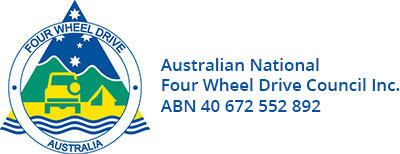Caravan Towing Speed Limits Australia
Towing speed limit in Western Australia (WA)
The maximum speed limit for towing a caravan in WA is 100 kilometres per hour regardless of the gross weight or gross combination mass (GCM) of the car and trailer or caravan. This is something everyone should be aware of and follow, as speeding can lead to fines and demerit points, or worse, road mishaps.
Most large vehicle or caravan combinations can weigh between 5,500 kilograms and 6,500 kilograms. With this much weight, the combined load of a car and caravan would be a lot more challenging to handle than your average family SUV. This also means that sudden stops or any abrupt directional changes would be potentially disastrous.
There is no caravan speed limit in WA for learner drivers, although the maximum speed limit set for them is 100 kilometres per hour. However, they can only tow a trailer if they are accompanied by an experienced driver.
Towing speed limit in New South Wales (NSW)
The speed limit for towing a caravan in NSW is up to the prevailing speed limit of the road. Along motorways and highways, this is 100 kilometres per hour. However, the tow vehicle should have a gross vehicle mass (GVM) that does not exceed 4,500 kilograms or 4.5 tonnes. If your CVM is greater than 4.5 tonnes, the speed limit is capped at 100 kilometres per hour.
The maximum speed limit for learner and provisional drivers in NSW is 90 kilometres per hour. Learner drivers are not permitted to tow a trailer or any other type of vehicle nor drive a vehicle that’s being towed.
Towing speed limit in Victoria (VIC)
There is no set speed limit for towing a caravan in Victoria as drivers are advised to ‘drive to conditions’. This means that drivers towing a trailer or caravan need to practise discernment based on prevailing road and environmental conditions.
Learner drivers are not allowed to tow a trailer or caravan in Victoria.
Towing speed limit in Queensland (QLD)
Just like in Victoria, there is no caravan speed limit in Queensland, and drivers are advised to follow posted speed limits instead.
Learner drivers in Queensland are allowed to tow a caravan or trailer on the condition that their L plate is prominently placed at the back of the caravan or is visible on the trailer.
Towing speed limit in South Australia (SA)
There isn’t a speed limit for towing a trailer in SA, although drivers are expected to follow posted speed limits and adjust their speed according to the road conditions.
Towing a trailer, caravan, boat or horse float is permitted for learner drivers in SA, so long as it doesn’t exceed 4,500 kilograms or 4.5 tonnes in weight.
Towing speed limits in the Australian Capital Territory (ACT)
As with most Australian states and territories, there is no towing speed limit set for ACT. Drivers should follow posted speed limits and always adjust their speed based on prevailing road conditions.
ACT learner drivers can tow a trailer or caravan as long as its GVM weight does not exceed 750 kilograms.
Towing speed limits in the Northern Territory (NT)
In the Northern Territory, as with most other parts of Australia, there are no specific caravan towing speed limits. As usual, drivers are expected to drive to road conditions and adhere to posted speed limits.
Towing is allowed for learner drivers in NT as long as their L plate is displayed on the trailer and car.
Towing speed limits in Tasmania (TAS)
In Tasmania, caravans must abide by the speed limit of the road as long as it is safe to do so. The sign posted speed limit on major highways is typically 100 or 110 kilometres an hour. If you are travelling on an unsealed road, the maximum permissible speed limit is 80 kilometres an hour.
The above rule only applies to drivers towing a caravan with its GVM weight under 12 tonnes.
Don’t risk a speeding fine
While there are no strictly set speed limits for caravan towing in Australia other than for WA and NSW, it’s important to know the relevant rules and regulations, especially if you are caravanning interstate.
Currently, the following fines and penalties apply across the different states and territories:
- WA: $100 to $1,500 plus possible demerit points depending on the vehicle type and km/h over the speed limit
- NSW: $123 to $3,821 plus demerit points depending on the vehicle type and km/h over the speed limit
- VIC: $207 to $1,900 plus demerit points and possible licence suspension depending on the vehicle type and km/h over the speed limit
- QLD: $177 to $1,245 plus demerit points depending on the km/h over the speed limit
- SA: $183 to $1,722 plus demerit points depending on the km/h over the speed limit (does not include penalties for road trains, which are higher)
- ACT: $297 to $2,136 plus demerit points depending on whether one is driving in a school or non-school zone
- NT: $150 to $1,000 plus demerit points depending on the km/h over the speed limit
- TAS: $87 to $995 plus demerit points and possible licence suspension depending on the km/h over the speed limit.
By adhering to caravan safety rules, including speed limits, you can avoid getting penalised and fined.
More importantly, you’ll be helping to make the roads a safer space for you and other drivers.
The above information was reproduced from www.lewisrv.com.au and was correct as at 1/12/2022. The Council takes no responsibility for the accuracy of the above information as regulations change from time to time and recommends that drivers check on the applicable limits with regard to their vehicle and towed load
